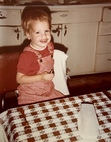Matt Snee's Blog, page 95
February 2, 2017
Meet Author J.W. Goodwin!

Who’s your favorite author?
J.K. Rowling since she wrote the first book series I loved from start to finish. Harry Potter were the only books I could sink my teeth into as a teenager and it was rare for me to find something I liked. I was devastated when my dad lost my copy of The Philosopher’s Stone, thank goodness I found a suitable replacement.
Which book or books have most informed you as a writer?J.K. Rowling has probably been a good influence on me but beyond her I’m not sure. I’ve more stumbled my way along the writing path as a way to share my ideas and imagination. It may not be the best way to learn but it started me along this strange adventure.
When did you realize you wanted to write?When I was a teenager and sharing fanfiction with a once good friend of mine. It was fun and, since I’m from a small town, it kept me out of trouble. I loved how I could engage people when I told them stories. I had to start writing them down or else I would get lost on what had happened. It was also entertaining to read them after. Now it’s kind of embarrassing and I wonder what I was on to write them, wouldn’t trade it for the world though.
What was your last completed project?Is the writing project ever truly completed? That’s a question I’ve been asking myself since I published “By The Light of A Darkened Forest” January 11th 2016. Every time I turn around I find myself wanting to tweak this part or add more to it. Guess you never really let go of a story even when it’s out there. I just have to remember that I’m not through with Evelyn yet.
What are you working on now?I’m tossing between two projects. First is the sequel to “By The Light of A Darkened Forest” which I’ve named “The Legend of Engardona” which is in its second draft. It’s an exploration on why the Engardonians migrated to Doolkfae and each time I read it I’m mixed with emotions. The other project is in the first draft phase and is the third book in that series that I’ve named “Mutant Wars” for now and I’ll keep how it relates a secret. Don’t want to give everything away.
What is your writing “process” typically like?Is a chaotic mess a process? If it is it’s what I do. It starts with a dream that I’ve written notes on, I flush out the main characters and even draw them, and then I get down to writing, doing the research as I go. Most of the time I don’t start with definite plotline, just stuff that needs to happen. I’ve discovered that writing is a very odd process of making something from nothing. If that isn’t a superpower then I don’t know what is.
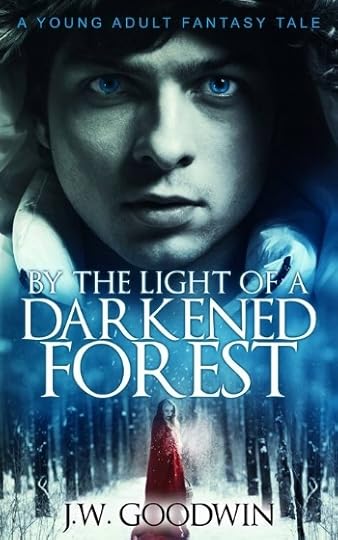
How do you combat writer’s block?
Very painfully and sometimes without success. I was on hiatus for 6 months or more because every time I’d sit down to write I’d have no words and nothing to put down. It was torture. Normally though if I’m having a rough go of it I’ll turn to drawing or focus on a side project.
Where do your ideas come from?The weird, fantastic dreams I have when I sleep. They are some of the most bizarre movies I’ve ever seen and I write down the most interesting ones I can remember when I wake up. If it wasn’t for those I don’t think I would have ever continued writing.
What’s your greatest challenge as a writer?Sentence length and variation. More of the technical stuff since I didn’t have much training on how to write a story. Most of what I know I learned on my own and high school can only teach you so much about the fundamentals. When I went to college it was more about report writing which is all facts and keeping it short and to the point. I wouldn’t be surprised if that’s my issue because I was good at it.
And what has been your greatest triumph (so far)?Putting the words The End on “By The Light of A Darkened Forest”, my first finished story. It was the first time I had finished anything and I was so proud of it. I wouldn’t have finished it though if it wasn’t for my friend Sherry reading each chapter as I wrote it. Having someone to push you to get that next chapter out is great. So really it is a shared victory. The next was publishing this novel for the world can read it.
Thanks, Jessica!!!
February 1, 2017
The Stars of Our Stories
I read China Mieville's "The Scar" perhaps ten years ago and love it. I don't remember it perfectly except for a few moments that really stuck with me. But I was reacquainted with it sometime last year when I was reading "The Cambridge Companion to Fantasy" and there was an essay that related that the key to this novel is that the heroine, Bellis, isn't really the star of the story, even though she thinks she is. She dreams of rescue, of some sort of resolution that redeems and saves her, but instead she's really just a passenger.
We are often the stars of our own stories, but seldom the stars of THE story, whatever that is. Even in THE story, stars are seldom stars for long - for instance, our very own President Trump is a dominant figure right now in the world, but someday people will hear his name and it will mean nothing to them. In the world's story, no one is the star for long.
Is there anything wrong with the fact that this is an ensemble piece, and not a heroic journey like we like to imagine? I don't think so. Fiction is fiction, and reality is, well, reality.
I seldom think we are placed on Earth to DO something, and are rather here to LEARN or experience something. Sure, it was important that Einstein developed E=MC2, and that J wrote the Genesis section of the Bible. But had they not been here, would someone else have done their jobs?
I'd like to think so.
In our society, we often value one life over another. A great inventor, we might say, is important, or a great Titan of industry who moved the world. But what about their mother's and father's, without whom they would never have existed? Or their friends or mentors who formed them? And on and on.
I believe all lives have value, not just American lives, or Christian lives, or even lives that affect other lives in some way. Every single life is important, and cannot be judged by humans. We just can't do it. If there is a God, that is his or her job. I refuse to make judgments on whose life has value, and whose does not.
My point is that even though we might not be a big part of THE story, our stories still matter, even if sometimes they seem to only to matter to us, and our loved ones. Everything matters, everything is connected, and while we might no be able to read the meaning of this tapestry, that doesn't mean it says nothing.
January 31, 2017
Rhythm and Melody...
Today is the 80th birthday of Philip Glass, the most famous, influential, and revered modern American composer, perhaps the most notable living composer in the world. I've been listening to his music since midnight during a marathon played by a radio station I like, and contemplating him in all of his many forms.
If you didn't know, I compose music as well, and also toured around for a while in a band back in my stupid days. I still toy with music now and again... it's really so different from writing, and such a welcome relief sometimes.
Before Philip Glass and the rise of minimalism, I feel a lot of music wasn't sure where to go, and was often unnecessarily complex. Glass distilled his thoughts into simple rhythms and melodies that pulses in waves, and most of the time, when listening to one of his pieces, it's obvious it's his.
I've been writing a lot of poetry lately, and I would like to say it's a lot more like composing music than prose is. Here, it's also about rhythm and melody.
You know, I didn't write poetry for many years, except for a brief burst when I wrote a poem about my friend in grief, "Evil Summer", which can be found on Amazon. Then I took a break again. But about a year ago I guess I started recording myself reading those poems, and that just kind of avalanched in writing poems again.
Sometimes I find it easier to write poetry.
Glass set out to make music that was impossible simple, where melody was obvious. I suppose I try to do the same thing in my poetry. Sure, I admit I can get a bit obscure and clustered in some of my metaphors, but I don't sustain that kind of density, and most of the time, I keep things simple.
There's a poetry contest I'm aiming for right now, The Emily Dickinson Award, which is not annual but more kind of random, for $10k, and publishing, etc. I'm trying to finish my latest epic poem for this project. The only problem, really, is I anticipate the poem being about 150 pages, where their limit is 88 pages. I'm hoping they'l forgive me when encountering the quality of the poem, and the necessity of its subject matter.
Or not.
January 30, 2017
Short Thoughts on the Long Form
I have been thinking today about some projects I have that are ALMOST done - including my straight up fantasy novel, "Great Adventure! - A Saga of Dream and Sword", which is about 350 pages, and just needs to be rewritten a little with a little bit added to the last third of it and it will be complete. This is the longest novel I've ever written, but I feel that it needs more stuffing to be complete - and won't be as stark as some of my other work.
I wish I could just wrap it up in a week and be done with it, and I imagine I could if I lived in a different universe where I was ten times as productive, but as it is, it will probably linger for months with me tinkering with it before it's done. What does exist right now was completed in record time, but to finesse it where it's a lot nicer of a novel, that's going to take time.
I don't write a lot of short stories anymore, and when I try they often become novels or novellas. I'm not in love with the short form, not even in my poetry (my newest poetry book will be about 150 pages), but I am a long-form writer, and there's no two ways about that. Though my first two novels are relatively short, they're still novels that took years of time to complete, and that's just that.
I just don't have a lot of interest in short stories, and when I do, like I said, I tend to eventually expand them so they are longer and deeper. I'm just not into short pieces. There's nothing wrong with that. I'm just a novelist and a poet, and not so much a short story writer.
Maybe cause I desire a little heft in my projects, I don't know. I just find that I have more to say than a short story allows, even with my stark, "cut everything" style.
I like the novel. That's what I grew up reading. Short stories are good, I agree. I'm just not interested in writing them.
January 29, 2017
Tarantino, Leone, Steinbeck, and Delillo
I watched Quentin Tarantino's "Hateful 8" the other night, and am still digesting it as a work of art. While I'm not an incredible fan of the excessive blood and violence, it does have a soul and a complex theme. But mostly what I want to talk about today, in relation to my common theme of "novel stuffing", is Tarantino's patience as a director.
He doesn't rush things. His characters have conversations. He lets anticipation build up. He waits. He makes the audience wait. While in a novel, this is composed of words, Tarantino's slow movement is painted in color and images and dialogue, until (most of the time) some violent explosion.
Like the writer's that write floridly, I envy Tarantino's patience, perhaps even more so in his medium than I usually do in text. I love old movies. I love slow movies. Kubrick is my favorite. I love the films of the seventies that linger and linger and linger.
Maybe I worry about the modern American mind and its short attention span, that leads me to write so sparingly and without lingering. Maybe I worry about my audience's lack of free time and mental space, and hope to entertain them with little work on their behalf.
Movies are different though. While they might take an attention span, one doesn't have make one's way through an ocean of words to linger or meditate on a scene.
I'm also thinking of the opening of Sergio Leone's "Once Upon A Time in the West", another western, with it's very slow opening that builds anticipation over minutes and minutes until the hero (Charles Bronson) makes his appearance and kills the bad guys. This is one of my favorite openings in movies, and obviously informed Tarantino's technique.
I can't really think of a scene from a novel similar to these two directors' work, I think mostly because cinema and literature are so darn different.
However, one of the parts in a novel that I love that lingers and slowly tells its story is the first opening pages of John Steinbeck's East of Eden. As a kid, I was obsessed with this work and read it over and over as Steinbeck describes the Salinas valley. I love this work.
Another scene that comes to mind is the opening prologue of Don Delillo's "Underworld", which features a panoramic, camera flying view of a baseball game featuring a multitude of characters including Edgar Hoover and other famous personages. It's a pretty stunning piece of writing in an otherwise so-so book (in my opinion). But this prologue is truly a tour de force, and I definitely recommend reading that, though not necessarily the rest of the book.
Anyway, that's what I'm thinking about today.
January 27, 2017
Writer's Suck
There's another side to writer's block where you're being productive but kind of in a counterproductive way - by writing drivel. I term this "Writer's Suck". This is kind of where I've been lately. And while I'm not saying everything one writes in this sort of period is terrible, it certainly always feels that way.
I've had a lot of stuff on my mind - my parents health, financial concerns, publishing stuff, etc. etc. and I've been having a real hard time concentrating on writing in any sort of serious way. I've been writing in dribbles. And I've been unhappy with the results.
It's hard sometimes to close out the world and just focus your brain the way it sort of is necessary to in order to write. I can't enclose my mind in my stories, I can't lose myself in sentences.
I feel very frustrated right now, as I feel adrift when I'm not being productive. There's so much I want to write, and when I'm going nowhere with it, it's enormously annoying.
I have gotten some work done in the past couple days, but it's been achingly slow.
I'm wasting a lot of time.
I'm hoping this clears up soon, but I really feel helpless.
January 26, 2017
Continued Thoughts on Novel Stuffing and Alan Moore
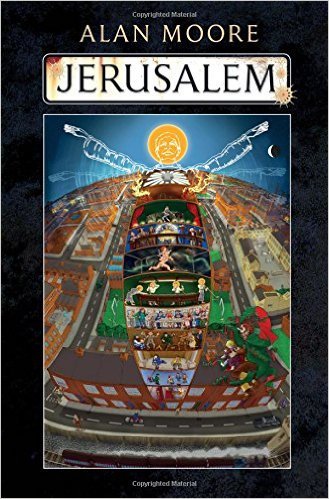
Alan Moore is a legendary comic book and graphic novel writer. I say this without exaggeration. With “From Hell,” “V for Vendetta,” “Promethea,” and other works, he has cemented his reputation for generations. Not to mention his masterpiece, “Watchmen,” is the only graphic novel consistently listed in 100 Greatest Novels of All Time lists. Moore is no joke. A great storyteller with encyclopedic knowledge of history, literature, and even the mystic arts.
But can he write a novel?
Well – he certainly wrote one: the 3,000+ page “Jerusalem,” which came out last year. A sprawling epic cut into three heavy volumes, it’s about EVERYTHING, from the gutters of London to who knows what cosmic ideas.
I started reading “Jerusalem” the other day. The first chapter is slow, methodical, with many details, many words, English dialect, and dreamlike sensibilities.
Now I’ve complained in the past about unnecessary padding and stuffing in novel. Is Jerusalem guilty of this? I don’t know. Would I have written this first chapter in a more minimalistic, shorter form? Definitely.
But I respect Moore without question. As an artist, if he decided to write in this fashion, I respect his decision.
Even though I will probably never write in a florid style again (I did in the past), I envy those that can. That might sound crazy. But despite my minimalist militarism, I do enjoy wordy, flowery text and slow stories. My favorite writers include Theodore Dreiser and Melville, among others. I remember a friend described Dreiser as “lethargic”. I describe him as “chill”.
Dusk – of a summer night.When I first read that line in American Tragedy, I was in love, a love for Dreiser that is as strong as ever. I read his “Sister Carrie” a while back, and I’m still haunted by descriptions of that novel.
So I’m cool with Alan Moore being a little wordy. It’s not how I write, but it’s sometimes how I wish I wrote.
Maybe.
January 23, 2017
Meet Author A.J. Griffiths-Jones!
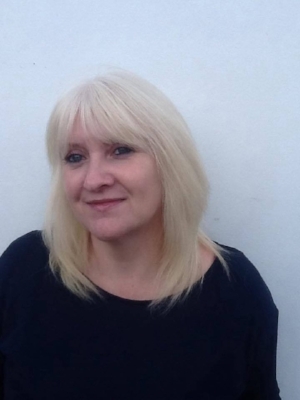
Who’s your favorite author?
Kazuo Ishiguro. I love his unique style of writing which leaves the reader having to use their imagination to understand the characters & conjure up endings.
Which book or books have most informed you as a writer?
I am a Charles Dickens addict & love the depth of his characters. I read a lot of work set in Victorian times as that is the period in which I am most interested. I would say that Agatha Christie has influenced me too, in that I like to add a good twist to my novels.
When did you realize you wanted to write?
Bit of a cliche, but from a very young age. I used to write plays for family parties, cartoon books, stories and poetry. As a child, if I was writing I was happy.
What was your last completed project?
'The Congregation' which was published on 15th December 2016. It's a cozy mystery novel set in 1970's England. The townsfolk are looking forward to the arrival of a new vicar with much anticipation but little does he know what secrets await him. It contains some black humour and quirky loveable characters.
What are you working on now?
I always research one book while writing another. At the moment I'm researching my second 'Jack the Ripper' related book and writing the fourth novel in my mystery series, it's called 'The Circus' and is set in the 1980's. Like the rest of the series, it's full of secrets and fun.
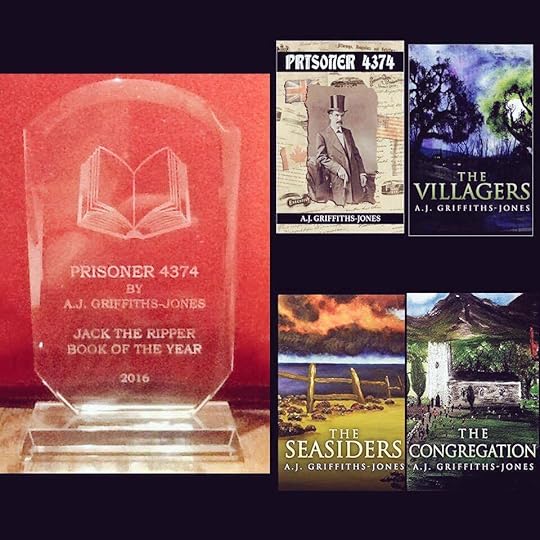
What is your writing “process” typically like?
I spend about three weeks creating the characters in my head, playing out scenarios like a mini-series, where I can see them, hear their voices and observe the interaction between them. After that it's simply a matter of putting pen to paper. Of course, with my non-fiction work it's a much more methodical process and I keep notes in a filing system until I'm ready to put it all together.
How do you combat writer’s block?
To be honest, I never suffer from writer's block. Working on two projects at the same time, I can alternate days, enabling me to start each morning with a fresh mind.
Where do your ideas come from?
I am a keen historian and love to research crime from the last century, which greatly inspires my writing. The characters for the mystery novels are a mix of people whom I've encountered in daily life and my wild imagination.
What’s your greatest challenge as a writer?
Due to the amount of work that I undertake and ideas that I have, my brain doesn't really shut off, causing me to suffer with insomnia. I find that a holiday in the sun every few months recharges my batteries and allows me to recover. I never write while away, that's my real downtime.
And what has been your greatest triumph (so far)?
I would say it was receiving the 'Jack the Ripper Book of the Year 2016 ' award for my first book 'Prisoner 4374'. It took me over ten years to research and contains many documents that have never been seen by the public before. I'm immensely proud of the work that went into the book and to have it recognised by criminologists, researchers and other authors was a dream come true.
THANKS A.J.!!
January 22, 2017
Meet Author Chris Tetreault-Blay
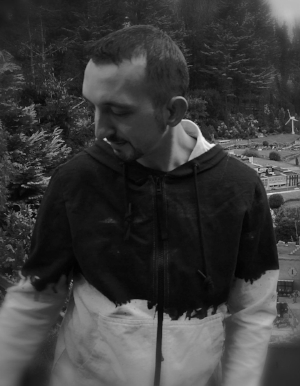
Who’s your favorite author?
Whilst it is hard to pick just one from a small group, the most influential writer for me is James Herbert. His books are the ones that have spoken to me the most and shaped my own work as a result.
Which book or books have most informed you as a writer?‘Ghosts of Sleath’ and ‘Others’, both by James Herbert. And also ‘Odd Thomas’ by Dean Koontz. There have been elements of each of these books, and each writer’s style, that I have molded into something within my own work to date. Herbert’s writing is so crisp and chilling, so to-the-point, that I wanted there to be similar moments in my books where people read them and have to do a double-take, asking themselves ‘Woah. Did he just say that?’
When did you realize you wanted to write?When I found out that I was going to be a Dad. As simple as that. When my wife called me to tell me that she was pregnant, so many things went through my mind - so many emotions came to the fore - that I just had to write them down. It started as a diary that I could one day show my kids, so that they could see the kind of person I was, how their existence was already changing me. Through it all, the kernels of several stories that had been manifesting within me over a number of years started to come through, sending me in a slightly different direction.
What was your last completed project?My latest release was ‘Blackgang: The Trickerjack Trail’, which is my second novella-style book, comprising three shorter tales under one roof. The book centers around one of my previous creations, a dark and twisted character called the Trickerjack.
What are you working on now?I am currently writing the final part of my Wildermoor Apocalypse trilogy, entitled ‘Of Gods & Insects’.
What is your writing “process” typically like?By definition I am what they call a “pantser”, meaning that I do not necessarily have a plan when I start writing. I just sit down with a blank page on my laptop, maybe with only a vague idea of a character that I want to develop or an event that I want to write about – however large or small – and let the story write itself. I suppose my current project is the most structured one so far, but again I have only provided loose bones for the story to hang from. I am largely still just letting it take me on a journey, rather than the other way around.
I guess you could say that I write from within the story – I start with the smallest detail and work my way out, exploring and discovering the place or time that I am writing about just the same as the reader will.
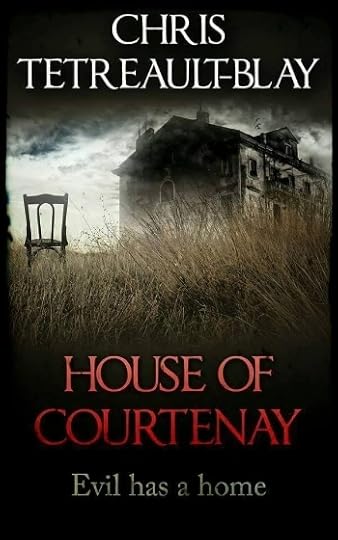
How do you combat writer’s block?
It’s funny that you should ask that really, as I am slap bang in the middle of writer’s block at the moment. I have been lucky enough not to have fallen victim to it too many times along the way, but when I hit that invisible wall, I just have to force myself to step away from it. I may even leave writing alone for a few days or weeks at a time, finding something else to distract my mind. Maybe listen to some music, read someone else’s book, go for a walk or a drive. Anything to take me away from my story, but at the same time putting me in touch with the things around me that could potentially provide the trigger that will set the wheels in motion again.
It is not necessarily that the story is not there or that we fail as writers if this happens. I’m sure it happens to all of us, and happened to the greats in their day too. You just need to recognize when it is time to walk away, even for a moment, so that you can look at your story from a distance.
Where do your ideas come from?Music, films, books. I would say everything around me. The slightest little thing might happen during my day-to-day routine that sticks with me and provides me with the starting point for a chapter, which will then lead to the development of the story as a whole. I have been a horror fan for many years too, which I’m sure has something to do with the nature of my work. I also have a love for folk tales and history. I have picked up ideas from films, books and songs along the way, all of which have played some part in creating ideas behind my books.
What’s your greatest challenge as a writer?Remaining focused, for sure. I have ideas going through my head every day of new stories or if I am working on a book, different plot twists or character traits that I feel MUST be included. It is hard to juggle all of these and still come out with a story at the end that flows perfectly, makes sense and evokes the emotions from the reader that you want them to. Achieving all of this whilst living your everyday life can be a massive undertaking.
But at the same time, it is just as hard not to beat yourself up if you need to put something else before your writing, as you constantly feel like you are letting someone down – whether it be your readers, publisher or even just yourself.
And what has been your greatest triumph (so far)?There have been a bunch of moments along the way where I felt like patting myself on the back. Putting the obvious one aside for the moment – that of becoming a published author - I would have to say it would be the day that I saw ‘House of Courtenay’ get the #1 in the Free Horror Short Story chart on Amazon.
Yes, it is a pretty niche category and it was a ‘Free’ chart, but to me that meant that it still stood out amongst a crowd of quality titles and when people don’t have to part with any cash to download your book, I believe there is in fact more competition.
‘House of Courtenay’ was my first self-published title, and was more of an experiment than anything else at the time. But it is the book that I still get the most memorable reactions for. In a sense it is my baby, the title that I nurtured the most at the start and I was over the moon to see it up there in the top spot, even if for a short time.
Either that or the day that I managed to put a copy of ‘Acolyte’ in the hands of one of my horror heroes, Robert Englund. I have a photo of him posing with me, pretending to read my book whilst wearing his famed clawed Freddy Krueger glove. And he kept the book! That will be hard to beat, for sure.
THANKS, CHRIS!
January 20, 2017
Meet Natalie J. Case
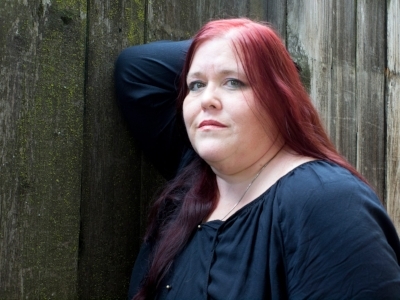
Natalie's book, "Through Shade and Shadow" is officially available on Amazon, here, today! Let's plunge into her mind below!
Who’s your favorite author?I’m not really great with favorites because they kind of change all the time. That said, I have loved Tolkien, Asimov, Katherine Kurtz, Mary Stuart, Stephan R. Donaldson, and of course JK Rowling, and so many more. New favorites include my good friend K. B. Wagers, who is writing awesome science fiction right now.
Which book or books have most informed you as a writer?
I think everything I’ve ever read has informed who I am as a writer in some ways. I remember the first time I got my hands on The Hobbit, I was nine and I was just starting to realize that writing was something that I could actually do. I think that heavily influenced my storytelling. Up until that point I had read things like Nancy Drew, the Bobsey Twins and the Black Stallion books. I loved them, but they didn’t inspire me the way The Hobbit did.
From there, I discovered the sci-fi/fantasy section of the library. I read so voraciously then! I think I can claim Katherine Kurtz’s Deryni series as a heavy influence as well. Her world building was so amazing, it felt like you could open the book and step into her world. I wanted to create places that were that convincingly real.
When did you realize you wanted to write?
I think I’ve always known that I wanted to write, I just didn’t realize I COULD for quite a while. And, even when I had realized that I could, there was a certain amount of fear involved. I wrote my first novel at 14, long hand in school notebooks and the like. It was awful, I promise. It was a rip off of every book I had ever read and movie I had ever seen. But, my friends liked it. And the sequel, which was just as bad, was read by a wide swath of my high school. They would line up outside the front doors to take pages to read during the day, and they would swap pages with others. At the end of the day, I’d wait for them all to be returned before heading home to write more.
What was your last completed project?
I have a book that I just finished and will be published in February. It’s the first book in a series of at least 3, possibly 4. It is contemporary fantasy, part political thriller, part paranormal fantasy. The two main characters in the first book are Mason Jerah and Alaric Lambrecht, both of whom are members of paranormal clans. The first book, Through Shade and Shadow follows the two of them as the United States experiences violent uprisings in the wake of a serial killer exposing Mason’s clan to the world. In the political landscape of an upcoming presidential election hinging on questionable morality claims and increasing xenophobia, both Mason and Alaric find themselves thrown into a conflict they have little control over.
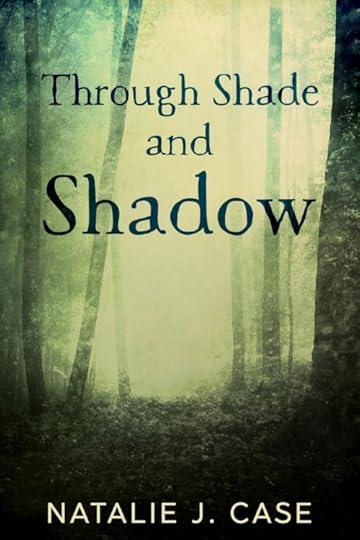
z
What are you working on now?
I am working on the sequel to Through Shade and Shadow, which is tentatively titled, In Shades of Sage. It continues the story of Mason and Alaric, and introduces new characters, some of them from other paranormal clans, who are involved in trying to stop the war that seems to be looming on the horizon.
What is your writing “process” typically like?
Hmmm. That’s a difficult question. I’m not sure I have a “process” so much as I have a brain that will not stop creating characters and worlds and situations. I’m pretty much “writing” in one form or another at all times. As to the mechanics of actually getting things from my head to paper…I set aside time to write every day. It’s important to me that there is at least a 15 minute window in which I can indulge the muse and let her spin a story. Most of that time, that writing window is focused on the current WIP, but sometimes what comes out instead is a random act of poetry or a scene for another story.
How do you combat writer’s block?
I don’t often suffer from writer’s block (knock on wood), but like any creative, there are times when the words just don’t work. Generally, my first response is “don’t force it” and get up and go do something else. If the drought lasts longer than a day or two, I will try to shift focus creatively. I’ll pick up a different story, write poetry, or grab my camera and head out to photograph random beautiful things. Whatever it takes to get the juices flowing again.
Where do your ideas come from?
Everywhere? Like I said before, my muse is overactive and never stops spinning. I often can’t place where something comes from objectively. My friends enjoy challenging me by handing me a handful of unrelated things and having me tell them a story using them. It boggles them how things just spring forward, fully formed with only a moment or two to think about them.
It boggles me that everyone’s brain doesn’t work the same way.
What’s your greatest challenge as a writer?
Getting it out of my head and down on paper in a way that is as satisfying and complete as what I see inside my head. I joke that when we finally get the technology to allow us to plug in and download our brains, I’ll be the first to sign up. My brain can create a fully fleshed out world in minutes, and it can take months to recreate it in words.
And what has been your greatest triumph (so far)?
Hmmm….I think my first book was something of a triumph. There’s a whole lot of my life in that work. It began when I was sixteen, and I published it with Creativia when I was 47. That’s a long time coming. I’m exceptionally proud of that book too. It is very different in tone and voice from anything else I have ever written.
Besides, you always love your first, right?

